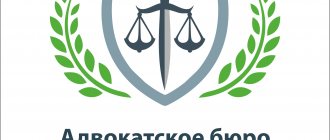Here are 5 notable cases of industrial espionage over the past few decades. Industrial espionage, sometimes also called economic espionage, is a very serious crime that can carry very heavy fines and penalties. It is quite common and can give a competitor a huge advantage in the commercial market. Here we have collected 5 notable examples of industrial espionage in recent times and tried to answer some common questions on this topic.
What is espionage?
Espionage means:
- Collecting data that defines a secret by any illegal means (theft of documents, bribery of officials).
- Disclosure and use of confidential data without the knowledge of its owner by the person who recognized it.
Information concerning the activities of legal entities and individuals is valuable not only for the organizations and citizens themselves, but also for their competitors and ill-wishers. This is the reason for the impossibility of disclosing it either because of the interests of the individuals themselves or because the law indicates this. Non-disclosed information is a secret of a particular field of activity.
Types of industrial espionage can be legal or illegal.
Silk
Silk was highly valued in the ancient world. The only source of silk was China, which strictly guarded its monopoly. As a result, silk prices were very high and fabric supplies were limited. The dangers, costs and time wasted made transporting silk along the caravan routes a difficult undertaking. The situation changed after the visit of Persian monks to the Roman Emperor Justinian. The monks revealed the secret of silk production. They explained that silkworms fed on mulberry leaves spin cocoons, which are then unwound into silk thread. Justinian was convinced that the climate in some parts of Greece was suitable for growing the necessary mulberries. He could get the mulberry trees, but he needed to get the silkworms. These same Persian monks, apparently for a generous reward, returned to China and were able to successfully smuggle silkworms to Rome in hollow staves. Justinian increased his wealth, and China lost millions in its foreign trade.
Types of espionage
Depending on the content and methods of collecting information, the following types of espionage are distinguished:
- State.
- Industrial.
- Economic.
- Mobile.
- Spying on the Internet.
State espionage
It refers to the collection of information constituting state or military secrets for its subsequent transfer to foreign organizations.
Industrial espionage
Represents the discovery of trade secrets of competitors. For industrial espionage, the Criminal Code of the Russian Federation has a separate article - 183.
In practice it can be expressed as follows:
- Theft of documents containing drawings or formulas of a new product.
- Theft of product samples.
- Recruiting a competitor's employees who have important information.
The purpose of industrial espionage can be either to seek profit for oneself (for example, the opportunity to obtain a technological formula for free), or to cause harm to a competitor (for example, depriving him of the opportunity to compete for a consumer).
Economic espionage
It is similar to commercial espionage, but the subject of the encroachment in this case can be not only the company, but also the state as a whole. It is carried out, as a rule, with the aim of worsening the economic condition of the subject of the encroachment.
Network espionage
This form of espionage involves collecting personal data about Internet users, including using special programs.
Punishment for disclosure of personal data is provided for in Art. 137 of the Criminal Code of the Russian Federation:
- fine up to 200,000;
- compulsory work;
- correctional work;
- forced labor;
- arrest up to 4 months;
- imprisonment up to 2 years.
Spying on the Internet is carried out by:
- Sites that request cookies with confidential user information;
- Companies monitoring employee behavior online;
- Individual individuals (hackers) who obtain information for their own interest or to gain access to the user’s finances.
Mobile spying
This may include installing special devices on a mobile phone that allow you to track the subscriber’s calls and messages, as well as determine his location.
Today, you can legally install a tracking device on the phone of a minor or incapacitated person.
Textile
Early American colonists depended on England for manufactured goods. In exchange, the colonists provided vital raw materials, including timber and agricultural products, as well as cotton and tobacco. But the colonies lost a lot in exchange, since England controlled the market. Prices for imported goods, especially textiles, were, according to the Americans, prohibitively high. England banned the emigration of textile workers to the New World and prohibited the export of factory equipment and its designs to the colonies. The situation looked hopeless until Samuel Slater took over.
The American Industrial Revolution is often dated to 1789, when Slater founded the textile mill that bears his name in Pawtucket, California. Rhode Island. While an apprentice in England, he memorized the blueprints of a textile mill and managed to sneak out of England (possibly with the help of an American financier) and make his way to the colonies, where he used his knowledge to break England's monopoly.
Concept and types of industrial espionage
Industrial espionage is one of the forms of intelligence activities of special services, an element of unfair competition, within the framework of which the illegal receipt, disclosure, and use of information that represents commercial, official or other secrets is carried out to obtain business advantages and material gain.
The initial use of industrial espionage is market research through the application of national and military intelligence practices.
Depending on the goals pursued by industrial espionage, there are:
- espionage for national security purposes as a tool of government intelligence;
- espionage for commercial purposes.
Industrial espionage in business is used to obtain information that constitutes a trade secret and its further use in competition. This is always an illegal act. Whereas the way to obtain information about a competitor within the legal framework is competitive intelligence (it involves obtaining information based on the analysis of open sources).
The key purpose of industrial espionage for business purposes is to save money for competition, the desire to overcome the technological gap and enter new markets. As a result of industrial espionage, a company usually receives information about current production technologies, investment strategy, etc. The subject may receive information about the features of marketing promotion, research and development, customer bases, sales and production volumes, etc.
The terminology “economic espionage” and “commercial espionage” is also often used in the literature (in Russian legislation, unlike in American legislation, these terms are not found). The terms industrial and economic espionage are usually used interchangeably. Meanwhile, economic espionage is a broader concept that additionally includes:
- the market value of all products produced in the society for the year;
- the amount of income of enterprises, organizations and the population in the field of material and intangible production, depreciation, their distribution among various sectors of the economy and interest rates, etc.
Typically, economic espionage is organized at the government level and has an international reach.
Corporate espionage is a narrower concept than industrial espionage. It occurs in the competitive environment of large corporations, while industrial espionage can be aimed at a wider range of organizations.
Depending on the methods of industrial espionage, it can take the form of:
- Bribery of a person in possession of information constituting a trade secret.
- Blackmail.
- Introducing an agent into an organization.
- Theft of information media.
- External and technical surveillance.
- Illegal access to significant information using technical means (tapping telephone conversations, hacking computer networks, etc.).
Industrial espionage is most often found in industries such as heavy industry, software, biotechnology, telecommunications, energy, aerospace, etc.
Most popular methods
Of course, there are a great many ways to illegally acquire information. Let's consider only the most widely used methods and means:
- Recruitment . Of course, technological progress has come a long way. You can use his achievements, but the most commonly used method is still outbidding the person who has the necessary information. Therefore, the security service must monitor unreliable employees as carefully as possible. Plus, the company’s management should provide financial incentives to its employees so that they don’t want to lose their jobs.
- Blackmail . Another favorite method of spies of all stripes. To carry it out, they monitor the personal connections of the person of interest; if they find some kind of compromising evidence, then under pressure they are persuaded to cooperate and disclose the necessary information.
- Development of social networks and Internet activity . Social networks nowadays are a godsend for a spy. Millions of photographs and comments settle here. And some of them are related to the user’s work. Simply, a person actively participating in social networks leaves a truly perfect dossier on himself. It is not without reason that restrictions on such Internet resources have been introduced for intelligence officers in Russia.
- Introduction of your agent . One of the most expensive methods, which can become the most profitable. It becomes costly not even from the point of view of monetary investments, but mental ones. After all, you will have to figure out not only how to bypass the security service when applying for a job so that no one suspects connections with competitors, but also how to obtain and transmit information in such a way that its leak is not associated with the identity of a spy.
- Tracking. But this method allows technical thought to develop. This involves the latest bugs, drones flying over production sites, miniature cameras, etc. It is very difficult to detect such devices. This requires an expensive check by specialists, and even better, the presence of your own staff who can track these miracles of technology and electronics. Corporations often have a rule for employees: when passing through a checkpoint, they hand over their phones, and in return they receive simple push-button phones belonging to the company, which they can use during the entire working time.
- Cyber attack. In the age of computer technology, all information relating to the life of an enterprise, from accounting reports to the latest developments, is recorded on electronic media. This is a field for hackers. Sending virus-infected emails, installing tracking programs and hacking. In the end, even the Pentagon's internal networks are being hacked. Therefore, if you have a good specialist, it will be possible to bypass electronic protection of not the highest level. The only solution may be to store particularly important information on media that does not have access to the Network.
- Bribery of employees of regulatory authorities. According to Russian laws, in certain cases, employees of the Ministry of Internal Affairs and tax services have the right to request information classified as a trade secret.
Examples of industrial espionage go back centuries. One of the first most famous was the abduction in the 4th century. silkworm caterpillars, which two monks managed to carry out of the Middle Kingdom with their staves. And the customer in this case was the Byzantine emperor. As a result, China's monopoly in silk production was lost.
If we take recent history, a notable example will be the export of tea bush seedlings from Ceylon by Soviet intelligence officers in the 30s of the last century. This theft gave rise to the development of the tea industry in Georgia.
Competitive intelligence
Competitive (business) intelligence is the legal collection of publicly available information with its subsequent processing to further determine solutions that increase competitiveness.
Collection of information
Unlike espionage, information is collected legally from available open sources. Data can be taken from:
- reviews;
- surveys;
- research;
- interviews with competitor representatives;
- published reports;
- personal experience of relationships with a competitor’s products or services;
- marketing activity;
- etc.
Information analysis
If a significant amount of data has been collected, then very important preparation will be required before analysis. It is necessary to highlight those segments that need to be omitted in further analysis.
At this stage, significant difficulties are likely to arise, so the segments, for a start, can be divided into clusters and several (if possible, parallel) analyzes can be carried out.
After this, you can start working with the collected information. Identify negativity and positivity in relation to competitors from the outside, evaluate the emergence of new or strengthening of old sales channels, possible changes in the emphasis of a competitor’s work.
As a result of the analysis, we must obtain the most complete picture of the competitor’s situation. Strengths and weaknesses, as well as plans for development or termination of activity in certain areas.
Based on the findings, we must formulate a plan for further action, marketing and other activities. Offer everything that increases our competitiveness and at the same time remains within the framework of the law.
Risk assessment
At the final stage, we assess the risks of adopting the plan from the previous paragraph. To what extent can the proposed steps undermine our financial condition? Are such changes at odds with the philosophy, established image and mission of the company?
If the result of information analysis implies structural changes affecting established business processes, then the likely consequences are difficult or almost impossible to predict.
Based on this, the logical and least painful way would be a gradual (if possible) change with a deep analysis of the consequences after each stage.
Otherwise, the likely negative consequences may take on an avalanche-like or, even worse, linear form, according to the “domino effect” principle.
It is also important to consider that some of the changes can be “rolled back”, while others will lead to reaching a “point of no return”, after which it will become impossible or too costly to return to the previous model.
How to understand the subject of commercial espionage?
In Part 1 of Art. 183 of the Criminal Code clearly indicates information for the illegal collection of which severe sanctions are provided. This:
- Trade secret.
- Tax secret.
- Banking secrecy.
What is a “trade secret”?
The Federal Law of July 29, 2004 under N 98-FZ is called “On Trade Secrets”. It states that a “trade secret” is information of any nature (economic, production, technical, organizational and others), including the results of intellectual activity in the scientific and technical field, information on methods of conducting professional activities:
- which have actual or potential commercial value due to their unknown to third parties;
- to which third parties do not have free access on any legal basis;
- in respect of which the owner of such information has introduced a trade secret regime.
A trade secret must have all these 3 characteristics. If even one is lost, then the whole meaning of a trade secret is lost.
In Art. 5 of the Law specifies information that cannot constitute a trade secret (it turns out that there is no liability for their dissemination):
- Contained in the constituent documents of a legal entity, as well as in documents that confirm the fact of making entries about legal entities and individual entrepreneurs in the relevant state registers.
- Contained in documents that give you the right to carry out business activities.
- On the composition of the property of a state or municipal unitary enterprise, as well as on the composition of the property of a state institution, on their use of funds from the relevant budgets.
- On the list of those persons who have the right to act without a power of attorney on behalf of a legal entity.
- On environmental pollution, as well as on the state of fire safety, on the sanitary and epidemiological situation, on the radiation situation, on food safety and other factors that have a negative impact on ensuring the safe and full functioning of production facilities, on the safety of each individual citizen and safety of the entire population.
- About the employer's arrears in paying wages and about arrears for other social benefits.
- About violations of the legislation of the Russian Federation and the fact of prosecution for committing such violations.
- On the number and composition of workers, as well as on the remuneration system, on working conditions (and on labor protection), on the indicators and presence of cases of industrial injuries and on occupational morbidity, as well as on the availability of vacancies .
- On the conditions of competitions or auctions related to the privatization of state property or municipal property.
- On the size and structure of income of non-profit organizations, on the size and composition of their property, on expenses incurred, on the number/number of employees of the enterprise, on the remuneration of workers, on the use of gratuitous labor of citizens in the activities of a non-profit organization.
- Information, the mandatory disclosure of which or the inadmissibility of restricting access to which has been established by other federal laws.
For example, if you told about the delay in payment of wages, then there will be no liability.
This norm also allows the operation of so-called “registers of counterparties”, in which the creators collect (and in fact provide access) to information about the legal entity, registration date, founders, and the size of the authorized capital.
How to understand banking secrecy? What it is?
The federal law entitled “On Banks and Banking Activities” in Art. 26 listed information that falls into the category of “banking secrecy”.
The law states that it is necessary to keep secret information:
- About client operations.
- About client accounts.
- About the deposits of the client and correspondents.
- Other information that includes bank secrecy in accordance with internal documents.
The following entities must maintain banking secrecy:
- Credit organisation.
- An organization that carries out the functions of compulsory deposit insurance.
- Bank of Russia.
Bank secrecy has a special regime, and certificates can be issued to a limited number of subjects if there are special grounds (judicial act, resolution, etc.).
It will not be a violation to provide information about a client’s accounts if the request comes from the following entities:
- the organization itself (for internal use);
- court of general jurisdiction;
- arbitration court (judges);
- Chamber of Accounts;
- tax authority;
- pension fund (PF);
- social insurance fund (SIF);
- body for the enforcement of judicial acts;
- preliminary investigation authority.
Competitive intelligence in marketing
Let's move on to some illustrative examples. For ease of understanding, let’s take exaggerated situations.
What can you “get” from reviews and surveys?
This is truly a treasure trove of useful free information. Many companies work with their own reviews, especially negative ones, but they do not systematically review competitors’ reviews, more in order to stay up to date. There are also those who like to gloat or impute to their employees and colleagues that “we are far behind our competitors.”
Similar work to what we do with our own reviews needs to be done with others. The advantages that are actively praised can be adopted (it is important to understand the “reality” of the review). Disadvantages can be used in marketing activities in order to show your advantages over your competitor’s audience.
Why it is impossible to select the entire target audience for such a campaign without additional verification, I explained in detail in the article Intuitive marketing: what it is and when you can’t do without it.
Example: in competitor reviews they often complain that the goods were damaged during delivery, we tell (and do!) that we securely pack the purchase in three layers and additionally insure the shipped cargo.
Similar tactics can be applied with personal experience, but here the problem of your subjectivity is acute.
How to work with research?
Research is a less frequent source that only applies to the absolute leaders. But any information, even indirect, can be useful to us.
For example, research shows that a competitor's main customer groups make repeat purchases every three years, while the product warranty expires after two. We can organize an advertising campaign where we will offer to trade in your old purchase with the possibility of receiving a three-year warranty.
Interviews and reports
“Looking under a microscope” every word, gesture and intonation. We are trying to assess the veracity of statements and data in reports based on previous statements and publications.
It is important to evaluate possible next steps here. The main areas of competitor activity and our reaction to these activities.
Example: a major player in an interview states that it plans to expand its geographic presence and will begin expansion into the region where our main interest is located. It's time to renew contracts with our suppliers, requiring exclusivity of work (absence of other major clients). Take a closer look at the available space in our region for long-term lease and subsequent opening of new outlets.
Marketing activity
Based on our campaigns, we have an idea of how much money is spent in our industry to attract one client. For exactly the same reason, we know how much this or that advertising campaign can cost.
If a competitor experiences an unreasonable change in activity, then this is at least a reason to carefully analyze the situation.
Example: a competitor’s advertising campaigns dramatically change the semantic emphasis of the image component on the technical characteristics of the product. And if we are not talking about small testing, but about global changes, then we should start our own research into the reasons for such a radical change. Most likely this is no coincidence.
Legislative regulation of industrial espionage
Russia provides for liability for the collection and disclosure of commercial, banking and tax secrets. The concept of a trade secret and the list of information that is not included in it are spelled out in Art. 139 of the Civil Code of the Russian Federation and Federal Law-98 “On Trade Secrets”. The definition of tax secrecy is contained in the Tax Code. Bank secrecy is regulated by Art. 857 Civil Code and Art. 26 Federal Law No. 395-1 “On banks and banking activities.”
According to Art. 102 of the Tax Code, tax secrets include information received by the Federal Tax Service, Department of Internal Affairs, investigative and tax authorities about the taxpayer. It also contains a list of data that cannot be classified as a tax secret.
This is information about the amounts of insurance premiums, information about accounting or tax reporting for the year, information about the average number of employees, and tax regimes.
Federal Law No. 98 defines a trade secret as economic, production, organizational information that has actual or potential commercial value due to the fact that it is unknown to third parties and third parties do not have access to it. In relation to this information, the copyright holder must establish a trade secret regime.
This law also contains a list of information that does not fall under a trade secret. This:
- data contained in the company’s constituent documents;
- data that confirms the inclusion of the company in the relevant registers;
- data included in documents confirming the right to engage in entrepreneurial activity;
- information on the composition of the property of a unitary/state enterprise;
- list of persons authorized to sign documents on behalf of the legal entity;
- employer's arrears of wages and other social benefits;
- data on environmental pollution, the state of fire safety, radiation safety, etc. information that relates to the safety of citizens and society as a whole;
- number and composition of employees, wage system, working conditions, cases of injuries and occupational diseases;
- conditions of competitions and auctions related to the privatization of state and municipal property;
- the size and structure of the NPO’s income, the composition of its property, the number of employees, their remuneration or an indication of the gratuitous nature of the work.
Article 26 of the Federal Law “On Banks and Banking Activities” contains information about the need to ensure the safety of information with the following content:
- about client transactions and accounts;
- about client deposits;
- other information that relates to banking secrecy according to internal documents.
Information constituting bank secrecy can be disclosed to a limited number of subjects if there are grounds in the form of a judicial act or resolution.
Credit institutions, the DIA, and the Central Bank are required to maintain banking secrecy.
Article 183 of the Criminal Code of the Russian Federation (illegal receipt and disclosure of information constituting commercial, tax or banking secrets)
Criminal legislation, as recently amended, provides that the collection of secret information that constitutes banking, tax or commercial secrets through threats, bribery, theft of documents or other unlawful means entails one of four types of punishment:
- A fine, the maximum amount of which is five hundred thousand rubles, or a fine in the amount of the salary of the convicted criminal (if he is an employee of any organization) or other income for a one-year period.
- Work of a corrective nature, the maximum period of which is one year.
- Forced labor for a maximum period of two years.
- Imprisonment for the same period.
Thus, the average period of financial or labor punishment is one year.
Illegal use or disclosure of information that constitutes a banking, tax or commercial secret by a person who received such information through work or service or in a confidential conversation, to the disclosure of which the owner of it did not give consent, is also punishable in one of four ways:
- a fine, the maximum amount of which is one million rubles, or a fine in the amount of the convicted criminal’s salary or other income for a two-year period. Additionally, the convicted person is deprived of the right to occupy certain positions or is prohibited from carrying out certain activities for a maximum of three years;
- correctional labor, the maximum period of which is two years;
- forced labor, the maximum period of which is three years;
- imprisonment for the same period.
Thus, if a person not only collects secret data, but also uses it, liability increases significantly both in terms and in amount.
If the dissemination of confidential information caused damage on a large scale or was committed for mercenary reasons, it is punishable in one of three ways:
- a fine, the maximum amount of which is one and a half million rubles, or a fine in the amount of the salary of the convicted criminal (if he is an employee of any organization) or other income for a three-year period. Additionally, the convicted person is deprived of the right to occupy certain positions or is prohibited from carrying out certain activities for a maximum of three years;
- forced labor for a maximum period of five years;
- imprisonment for the same period.
Thus, the legislator believes that correctional labor will not fully compensate for the harm caused by the crime to society.
If, as a result of the fact that the convicted person disclosed personal or other confidential information, serious consequences occurred, there are only two options for punishment:
- Forced labor for a maximum period of five years.
- Imprisonment for a maximum of seven years.
Thus, the more harm caused by a person's violation of legal privacy rules, the more severe the judgment will be.
What is the article of the Criminal Code about?
The article specifies criminal liability for disclosing trade secrets.
It has 4 parts:
- The first deals with the punishment for a crime committed by bribery, threats, theft of documents or other illegal means.
- In the second - about punishment for disclosing a secret without the consent of the owner by a person who has received a power of attorney to receive it or has received information through service or work.
- In Part 3 of Article 183 of the Criminal Code of the Russian Federation - for an act that caused major damage or was committed for personal gain.
- In the fourth, for a crime that resulted in grave consequences.
General information on Art. 183 of the Criminal Code of the Russian Federation for “industrial espionage”
Article 183 is called “Illegal receipt and disclosure of information constituting tax, commercial, banking secrets” and is found in Chapter. 22 “Crimes in the field of economic activity” (this chapter also contains articles for illegal entrepreneurship, illegal gambling, falsification of financial statements and other crimes).
| Part of Art. 183 | Formulation | Sanction (liability for espionage) |
| Part 1 art. 183 | Gathering information by stealing documents, threats or bribery | Fine up to 500,000 rubles. Fine in the amount of salary/or other income for a period of up to 12 months. Correctional labor for up to 1 year. Forced labor for up to 2 years. Imprisonment for up to 2 years. |
| Part 2 Art. 183 | Illegal disclosure/use of information without the consent of the owner by a person to whom such information was entrusted or became known through work/service | Fine up to 1,000,000 rubles + deprivation of the right to hold positions for up to 3 years. Fine in the amount of an individual’s salary/other income for periods of up to 2 years + deprivation of the right to hold positions for up to 3 years. Correctional labor for up to 2- x years. Forced labor for up to 3 years. Imprisonment for up to 3 years. |
| Part 3 Art. 183 | Collection or disclosure that entailed major damage (as well as those committed out of selfish interest) | Fine up to 1,500,000 rubles + deprivation of the right to hold positions for up to 3 years. Fine in the amount of salary/other income for a period of up to 3 years + deprivation of the right to hold positions for up to 3 years. Forced labor for periods of up to 5 years. Imprisonment for up to 5 years. |
| Part 4 art. 183 | Collection or disclosure resulting in grave consequences | Forced labor for up to 5 years. Imprisonment for up to 7 years. |
Major damage under Art. 183 of the Criminal Code of the Russian Federation - this is more than 1,500,000 rubles.
“Severe consequences” is an assessment category , the characteristics of which are determined on the basis of specific circumstances and facts when considering the case (for example, they take into account the facts of bankruptcy, mass layoffs, hunger strikes, strikes and many others).
The corpus delicti under Art. 183 of the Criminal Code of the Russian Federation
- Object – social relations arising in the sphere of economic activity. IMPORTANT in Art. 183 of the Criminal Code of the Russian Federation to know the subject. This is not just information, but information that constitutes commercial, as well as banking and tax secrets.
- The objective side is actions that are united by the concepts of “collection” and “disclosure”. For example, this could be theft, bribery, system hacking, and others. The composition under Part 1 of Article 183 of the Criminal Code of the Russian Federation is formal : responsibility already arises for the fact of collecting information (even if it could not be disclosed, transferred to other persons, or sold).
- Subject – from 16 years old; sometimes a special subject is required (a person to whom such information was entrusted or became known through work/service ).
- The subjective side is direct intent. But Part 3 and Part 4 of Art. 183 of the Criminal Code allows that a crime can be caused through negligence.
| Part 1 art. 183 | Part 2 art. 183 | Part 3 art. 183 | Part 4 art. 183 |
| Social relations arising in the sphere and area of economic activity + special subject | Social relations arising in the field of economic activity + there is a special subject | Social relations arising in the sphere of economic activity + there is a special subject. | Social relations arising in the field of economic activity + there is also a special subject |
| “Collection” of information and information constituting a trade secret. The composition is formal. | The composition is constructed according to the formal type. “Disclosure” can be both in the form of action and in the form of inaction. | It will still be necessary to prove a cause-and-effect relationship that these actions led to the consequences. | It will be necessary to prove a cause-and-effect relationship that these actions led to the consequences. |
| The intent is direct, but the motives for committing a criminal act are different (revenge, jealousy, self-interest and others). | The intent is implied to be direct. | It is implied that the person knows about the act and the consequences, desires it or consciously allows it, or is indifferent to this kind of consequence. Negligence is possible. The obligatory motive is self-interest). | It is implied that the person knows about the act and the consequences, desires it or consciously allows it, or is indifferent to such a consequence. Carelessness is possible. Self-interest is a mandatory motive). |
| Subject – any person over the age of 16 who: A) is not the owner of the secret; B) was not allowed to see her due to the performance of duties. But it may also be special. | Subject – from 16 years old; special. This is the one to whom the information was entrusted in accordance with the performance of work or official duties. | Subject – any person over the age of 16 who: A) is not the owner of the secret; B) was not allowed to see her due to the performance of duties. It can also be special. | Subject – any person over the age of 16 who: A) is not the owner of the secret; B) was not allowed to see her due to the performance of duties. It can also be special. |
It turns out that according to the composition of Part 2 of Art. 183 of the Criminal Code of the Russian Federation, liability will arise even in the situation where you provided information to the cleaner/janitor/mother . Those. to at least one third party who did not have the right to review such information.
The concept of “espionage” = only collecting information = part 1, part 3 and part 4 of Art. 183 of the Criminal Code of the Russian Federation. It can be commercial, banking, corporate, economic (different concepts are used).
But disclosing the secret is separate . In the same criminal legislation of the Republic of Belarus, “collection” and “disclosure” are provided for in 2 different articles.
Tax secret
We examined the essence and concept of a trade secret. One of its aspects and directions is tax secrecy. In accordance with the standards prescribed in Art. 102nd Tax Code of the Russian Federation, NT means a set of information about payers that was obtained by:
- investigative organizations;
- tax offices;
- representatives of the internal affairs department;
- off-budget federal funds;
- customs companies.
And since 2016, this category also includes information about the amounts of insurance payments made by taxpayers. The Tax Code (Article 102) also states that it has nothing to do with NT:
- data on tax reporting documents;
- materials on the number of employees of the company;
- information about taxation systems for the population;
- information about insurance contributions and their tariff features;
- non-compliance with regulations in the field of fees.
In Art. 183 of the Criminal Code of the Russian Federation it is noted that a certain amount of responsibility is assigned for illegal acts , because they can cause direct or indirect damage to the company itself.
Industrial espionage: characteristics of the crime
Criminal liability for industrial espionage arises if we are talking about the illegal collection and receipt of information. In particular, through the theft of documentation and other media, bribery, threats and blackmail, obtaining information in violation of the confidentiality of correspondence, unauthorized access to computer information, etc.
The object of the crime is social relations in commercial activities.
The action will be considered completed from the moment the specified actions are performed, regardless of whether they led to results.
If the crime included bribery of a manager of a competing company, then such actions are additionally qualified under Art. 204 and 291.
The subjective side of the crime consists of direct intent. The subject of this crime is special (under Part 2 of Article 183) or general. A crime can be committed both in the form of active actions and inaction (for example, if we are talking about the disclosure of information as a consequence of its insufficient protection).
The qualifying features of the crime are:
- causing major damage to the activities of the enterprise in the amount of more than 1.5 million rubles. (according to the classification of damage under the Criminal Code);
- causing grave consequences through industrial espionage;
- committed out of selfish interests (for a fee).
Grave consequences are an evaluative act and must be qualified by the court. These include the bankruptcy of a city-forming enterprise, which led to negative social consequences: hunger, unemployment, destruction of the communal system, strikes, etc. The offender could have caused these consequences through negligence or with direct intent.
A person can use information obtained during industrial espionage personally or through transferring it to third parties. If the information was used personally by the offender, then, as a result of obtaining it, the criminal may receive a certain benefit (for example, buy shares, the upcoming growth of which he became aware of) or use it for blackmail, to compromise management, or in another way.
How to fight industrial espionage
Today, even a large corporation trying to fully protect its data can suffer from information leakage through industrial espionage. At the moment, there are many methods of unauthorized access to classified information. Therefore, it is not possible to protect yourself 100%.
However, there are several methods that can significantly reduce the risk of information leakage. Let's look at them in more detail:
- Organizational measures. They involve organizing the work of employees who have access to confidential information. The employer's actions should be aimed at testing and instructing personnel. Every employee should be aware of the rules for handling valuable information. In addition, proper distribution of responsibilities is necessary. For example, responsible and controlling persons are appointed with different access rights.
- Disciplinary action. Consists of monitoring the fulfillment of obligations regarding non-disclosure of confidential information. In case of violation of obligations, the employee is held accountable. Article 81 of the Labor Code of the Russian Federation provides for various disciplinary sanctions, up to and including the dismissal of an employee for disclosing trade secrets.
- Technical measures. They assume the use of special means of protecting confidential information. We are talking about cryptography and encryption tools, video surveillance systems, secure storage facilities and safes with combination locks. The company may introduce a security check regime with mandatory acquisition of rights to access classified data.
Corporate espionage can cause significant harm to a company. Therefore, persons involved in such crimes are subject not only to disciplinary action, but also to criminal liability. An employer has the right to fire a person found to have disclosed confidential information.
Responsibility measures
Industrial espionage in Russian legislation is assigned one article in the Criminal Code (Article 183). Actually, there is no direct mention of this term in it. It is subject to illegal receipt and disclosure of information, which is regarded as a trade secret.
| Type of offense. | Intended punishment. |
| Collecting information using illegal methods. Something like kidnapping, threats, blackmail, etc. | For those guilty, it will result in fines of up to 500 thousand rubles, and possible imprisonment for up to 2 years. |
| Disclosure or use of information that is a trade secret without obtaining the consent of the copyright holder. | Penalties of up to 1 million rubles are provided for the guilty person. He may also be imprisoned for up to 3 years. |
| Disclosure or use of information that caused major damage or such an act was committed for personal gain. | The guilty person will be punished with a fine of up to 1.5 million rubles. The maximum penalty will be imprisonment for a term of up to 5 years. |
| Disclosure and/or use of a trade secret entailed consequences that are assessed as grave. | There are no penalties in this case. The guilty person will either be sent to forced labor for up to 5 years, or imprisoned for up to 7 years. |
In this case, an amount exceeding 1.5 million rubles is recognized as major damage. Bankruptcy of enterprises, unemployment, destruction in the housing and communal services system, etc. are considered as serious consequences.
Sources
- https://FB.ru/article/67232/promyishlennyiy-shpionaj-teoriya-bolshogo-biznesa
- https://lexconsult.online/8431-shpionazh-vidy-sostav-prestupleniya
- https://pravo.team/uk-i-koap/gosudarstvennaya-bezopasnost/promyslennyj-spionaz.html
- https://adm-pravo.ru/pravonarushenie/predprinimatelstvo/promyshlennyj-shpionazh/
- https://pozakonu.site/sud/st-183-uk-rf-promyshlennyj-shpionazh.html
- https://ugolovnoe.com/pravo/kodeks/st-183-uk-rf
- https://yurister.ru/ugolovnyy-kodeks/st-183-uk-rf.html
- https://ugolovnyi-expert.com/promyshlennyj-shpionazh-statya-183-uk-rf/
Concept
Espionage in the Russian Federation is an illegal activity, the consequences of which may adversely affect the security of the Russian Federation, committed by a non-citizen of the Russian Federation (foreigner) or a stateless person, aimed at finding out secret information on the territory of the Russian Federation for subsequent transfer to persons acting in the interests of a foreign company, firm, states.
Punishment for espionage is determined in accordance with the provisions of Article 276 of the Criminal Code of the Russian Federation.
Qualifying features
A conviction for espionage follows if a person who is not a citizen of the Russian Federation or does not have citizenship:
- collected secret information personally or with the help of special equipment, other persons,
- stored confidential data with the status “secret information”, without having the right to do so as an official or person participating in a classified project, experiment,
- tried to recruit/recruited agents to gain access to secret information, documents, formulas, etc.,
- transferred/transferred/planned to transfer secret information to third parties representing the interests of another state, to a foreign company.
Guilt of espionage occurs without taking into account the consequences of the actions of the suspected espionage.
Difference from treason
They are punished for it in accordance with the terms of Art. 275 of the Criminal Code of the Russian Federation.
High treason and espionage are among the state crimes aimed at the external security of the state.
Treason and espionage distinguish between those who divulged secrets intentionally and those who did so accidentally.








